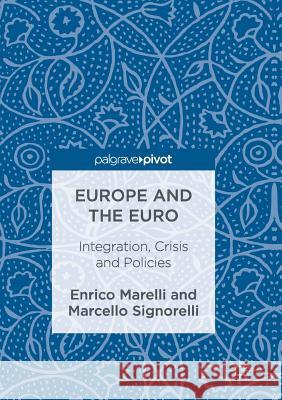Europe and the Euro: Integration, Crisis and Policies » książka
topmenu
Europe and the Euro: Integration, Crisis and Policies
ISBN-13: 9783319833606 / Angielski / Miękka / 2018 / 182 str.
Kategorie:
Kategorie BISAC:
Wydawca:
Palgrave MacMillan
Język:
Angielski
ISBN-13:
9783319833606
Rok wydania:
2018
Wydanie:
Softcover Repri
Ilość stron:
182
Waga:
0.25 kg
Wymiary:
21.01 x 14.81 x 1.12
Oprawa:
Miękka
Wolumenów:
01
Dodatkowe informacje:
Wydanie ilustrowane











